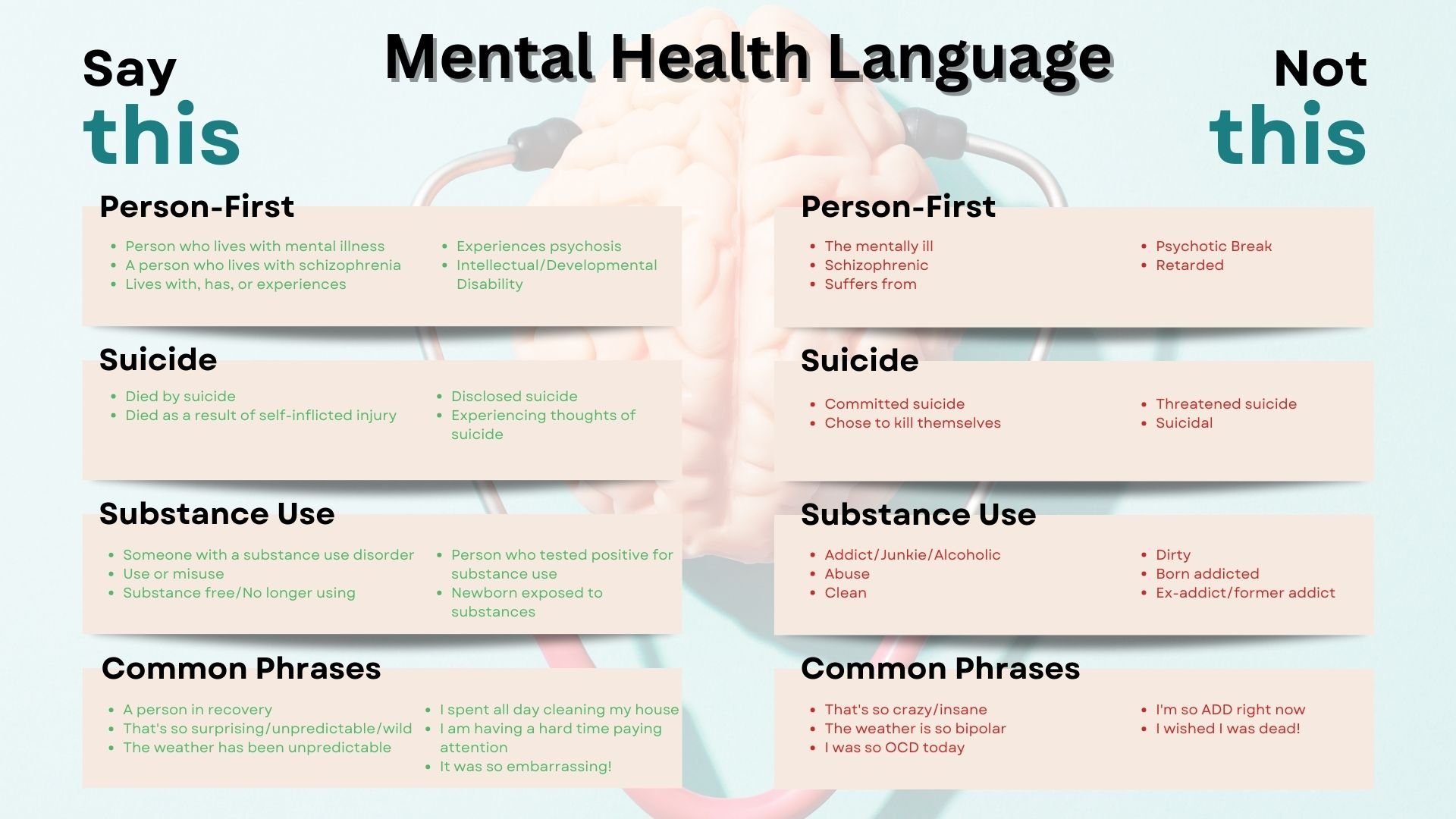How to Speak About Mental Health

Your language matters, and it is important to make a conscious effort to reduce the stigma and discrimination for those living with a mental illness and their families.
Below are some common terms and their definitions as well has a handy visual chart that shows the words and phrases you should use and which ones you should try to avoid.
Mental Health Language
Some terms you may hear when someone refers to their personal mental health issues include “peer,” “survivor,” “person with lived experience,” or “person in recovery,” among others. Mental health providers still routinely use the terms “consumer,” “client,” and “patient” depending on the specific treatment setting. At the National Association of Mental Illness (NAMI), they use the terms “peer” to describe anyone who identifies as living with a mental illness, and “family member” to describe anyone with a loved one who lives with a mental illness.
Stigma
Stigma is when someone views a person in a negative way just because they have a mental health condition. Stigma often stems from lack of understanding or fear and can lead to discrimination. One contributing factor to the stigma around mental illness is language. Decreasing stigma through language helps to increase support and awareness or people living with a mental illness.
Person-First Language
Person-first language places the emphasis on the individual, rather than on their diagnosis or condition. A person is not their disorder, they are neighbors, parents, siblings, professionals, friends, family, colleagues, loved ones. The person should always be placed first, then their condition second. Using person-first language can help to reduce and eliminate stereotypes and stigma.

Additional Mental Health Resources
Bring a presentation to your company! The presentation would touch on the following:
Mental Illness & Mental Health 101
Who is NAMI & Local Resources
Integrating Workplace Wellness into your Corporate Culture
Balancing Life Transitions in the Office & at Home
Active Listening for those Disclosing or Experiencing Mental Illness
Custom Presentations
Contact: nami@namiwisconsin.org
![]()
Reach out to our own Strategic Wellbeing Consultant, Taylor Hahn, to discuss next steps as many of our other employer groups have found this to be a successful approach.





